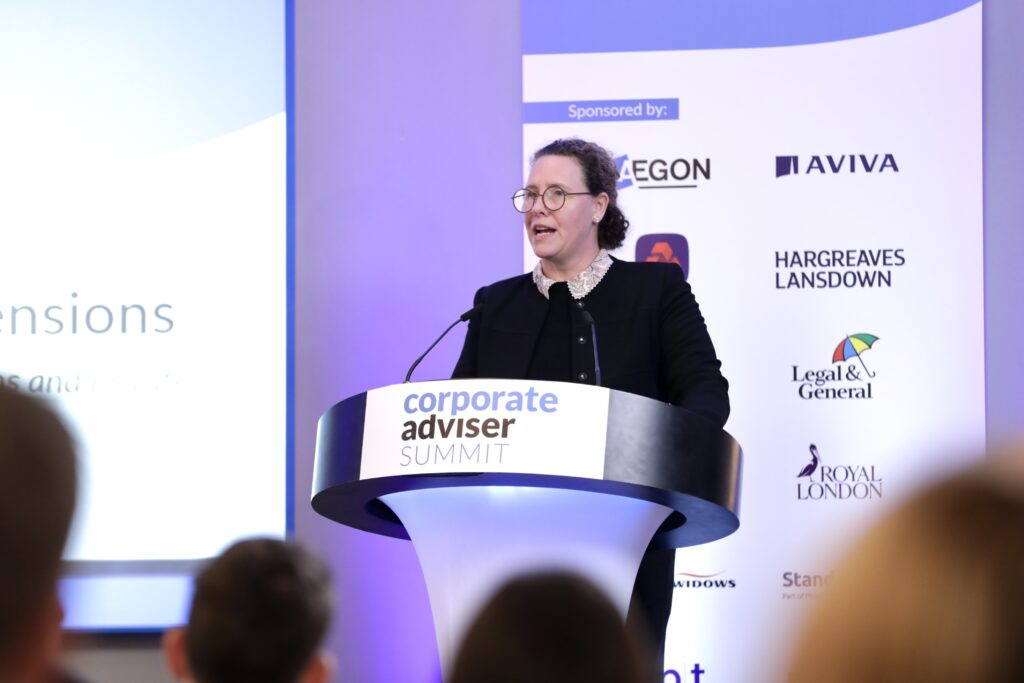UK private equity and venture capital funds are attracting 16 times as much investment from overseas pension funds than from UK pensions.
This was one of the headline figures presented to the Corporate Adviser summit by Kerry Baldwin managing director of IQ Capital, and chair of the Pensions and Private Capital Expert Panel — a government-led panel that designed to facilitate greater DC investments into private markets in the wake of the Mansion House Compact.
Baldwin set out the benefits of investing in private markets, and the opportunity this presents to boost member returns, as well as meeting ESG targets particularly in relation positive environmental and societal impacts, with many of these hi-tech startups investing in climate transition and healthcare solutions.
She pointed out in in 2022 UK managed venture capital and growth funds received approximately £432 million from international pension funds. In contrast these funds received just £48m from UK pension funds. “Let’s face it this is not a lot,” she said.
As a result DC schemes are potentially missing out on long-term growth. She pointed out that the British Venture Capital Association performance and measurement survey, conducted in association with PwC, shows that UK venture capital and private equity funds have achieved an internal rate of return (IRR) of 14.5% per annum since 1980. For mature funds from the 2014 vintage and onwards, the IRR is 17.8%.
Baldwin points out that returns for venture capital and private equity funds have outperformed the FTSE100 and MSCI Europe for every year since 2001.
Baldwin says that venture capital managers are far more actively involved in the management of these start-up and growing companies, with many of the technological developments starting in the UK. But with investment from outside, the profits, and the teams that run these companies are moving overseas. Attracting greater investment from UK pensions schemes could both benefit the economy and also ensure better returns for pension savers she said.
Baldwin also set out the key difference between difference sections of the venture capital and private equity market, including Seed funds, Series A funds and Growth Equity funds — setting out typically funding levels and number of companies in each fund.
Baldwin, who for IQ Capital manages Series A funds say that typically managers are hunting for ‘dragons’ among the 20 to 30 funds invested in: companies where the returns made cover the investments made across the entire fund. She said that first fund managed invested in a ‘dragon’ company that paid two times the investment made elsewhere, where the second iteration of this fund invested in a dragon who returned six times the investments made elsewhere in the fund.
Baldwin set out how these funds seek out opportunities in the life sciences and biotech sectors, often working with spin-out from universities. This has included investments in companies such as Nyobolt, which is developing new high-powered batteries with faster charging times, enabling electric vehicles to be fully charged in under five minutes.
She said that in the latest funding round though this companies had attracted investment form US pensions funds and corporate investors, and as a result the team had migrated to the US.
Baldwin said that the expert panel is working to address some of the legal, regulatory and technical challenges when it comes to encouraging greater DC investment in private equity and venture capital, and other private market investments. A recent report, which is available on their website put forward 12 recommendations. This include recommending that the permitted links rules be suspended for DC default funds.
